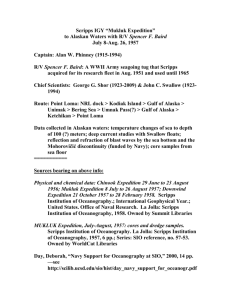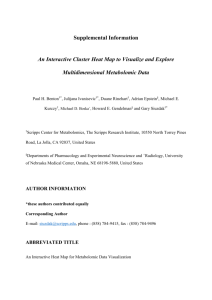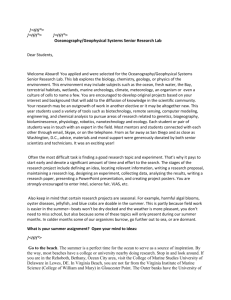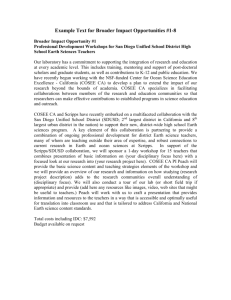Scripps Institution of Oceanography
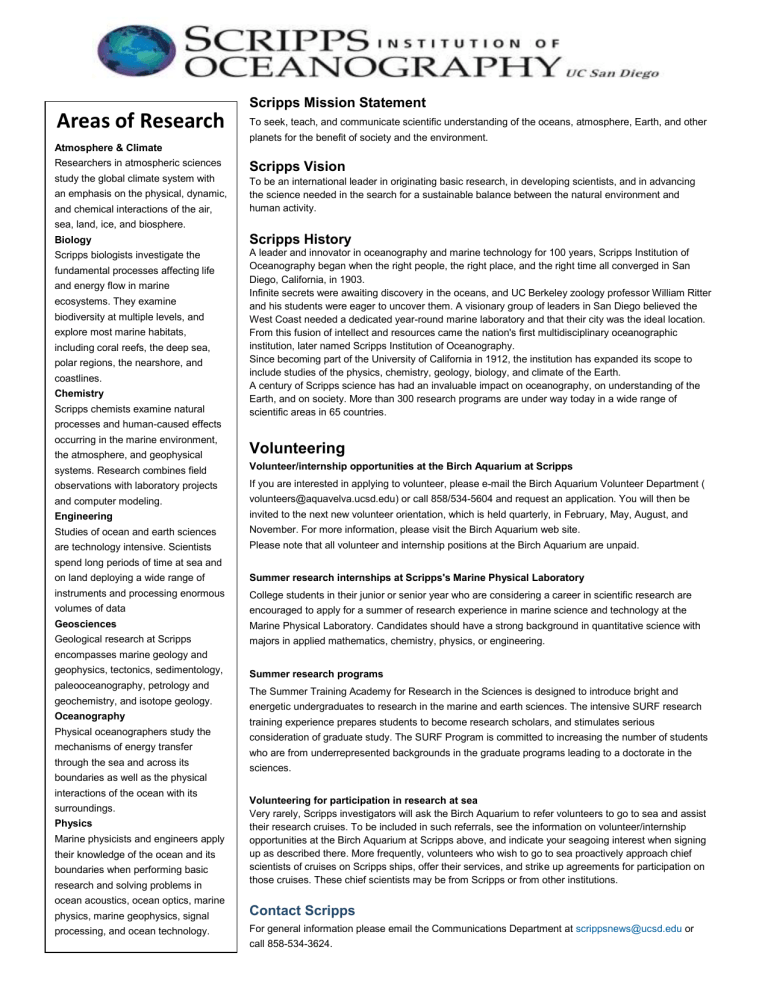
Areas of Research
Atmosphere & Climate
Researchers in atmospheric sciences study the global climate system with an emphasis on the physical, dynamic, and chemical interactions of the air, sea, land, ice, and biosphere.
Biology
Scripps biologists investigate the fundamental processes affecting life and energy flow in marine ecosystems. They examine biodiversity at multiple levels, and explore most marine habitats, including coral reefs, the deep sea, polar regions, the nearshore, and coastlines.
Chemistry
Scripps chemists examine natural processes and human-caused effects occurring in the marine environment, the atmosphere, and geophysical systems. Research combines field observations with laboratory projects and computer modeling.
Engineering
Studies of ocean and earth sciences are technology intensive. Scientists spend long periods of time at sea and on land deploying a wide range of instruments and processing enormous volumes of data
Geosciences
Geological research at Scripps encompasses marine geology and geophysics, tectonics, sedimentology, paleooceanography, petrology and geochemistry, and isotope geology.
Oceanography
Physical oceanographers study the mechanisms of energy transfer through the sea and across its boundaries as well as the physical interactions of the ocean with its surroundings.
Physics
Marine physicists and engineers apply their knowledge of the ocean and its boundaries when performing basic research and solving problems in ocean acoustics, ocean optics, marine physics, marine geophysics, signal processing, and ocean technology.
Scripps Mission Statement
To seek, teach, and communicate scientific understanding of the oceans, atmosphere, Earth, and other planets for the benefit of society and the environment.
Scripps Vision
To be an international leader in originating basic research, in developing scientists, and in advancing the science needed in the search for a sustainable balance between the natural environment and human activity.
Scripps History
A leader and innovator in oceanography and marine technology for 100 years, Scripps Institution of
Oceanography began when the right people, the right place, and the right time all converged in San
Diego, California, in 1903.
Infinite secrets were awaiting discovery in the oceans, and UC Berkeley zoology professor William Ritter and his students were eager to uncover them. A visionary group of leaders in San Diego believed the
West Coast needed a dedicated year-round marine laboratory and that their city was the ideal location.
From this fusion of intellect and resources came the nation's first multidisciplinary oceanographic institution, later named Scripps Institution of Oceanography.
Since becoming part of the University of California in 1912, the institution has expanded its scope to include studies of the physics, chemistry, geology, biology, and climate of the Earth.
A century of Scripps science has had an invaluable impact on oceanography, on understanding of the
Earth, and on society. More than 300 research programs are under way today in a wide range of scientific areas in 65 countries.
Volunteering
Volunteer/internship opportunities at the Birch Aquarium at Scripps
If you are interested in applying to volunteer, please e-mail the Birch Aquarium Volunteer Department ( volunteers@aquavelva.ucsd.edu) or call 858/534-5604 and request an application. You will then be invited to the next new volunteer orientation, which is held quarterly, in February, May, August, and
November. For more information, please visit the Birch Aquarium web site.
Please note that all volunteer and internship positions at the Birch Aquarium are unpaid.
Summer research internships at Scripps's Marine Physical Laboratory
College students in their junior or senior year who are considering a career in scientific research are encouraged to apply for a summer of research experience in marine science and technology at the
Marine Physical Laboratory. Candidates should have a strong background in quantitative science with majors in applied mathematics, chemistry, physics, or engineering.
Summer research programs
The Summer Training Academy for Research in the Sciences is designed to introduce bright and energetic undergraduates to research in the marine and earth sciences. The intensive SURF research training experience prepares students to become research scholars, and stimulates serious consideration of graduate study. The SURF Program is committed to increasing the number of students who are from underrepresented backgrounds in the graduate programs leading to a doctorate in the sciences.
Volunteering for participation in research at sea
Very rarely, Scripps investigators will ask the Birch Aquarium to refer volunteers to go to sea and assist their research cruises. To be included in such referrals, see the information on volunteer/internship opportunities at the Birch Aquarium at Scripps above, and indicate your seagoing interest when signing up as described there. More frequently, volunteers who wish to go to sea proactively approach chief scientists of cruises on Scripps ships, offer their services, and strike up agreements for participation on those cruises. These chief scientists may be from Scripps or from other institutions.
Contact Scripps
For general information please email the Communications Department at scrippsnews@ucsd.edu
or call 858-534-3624.
